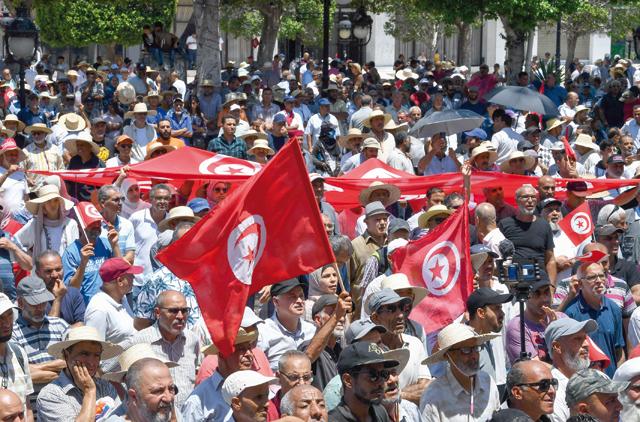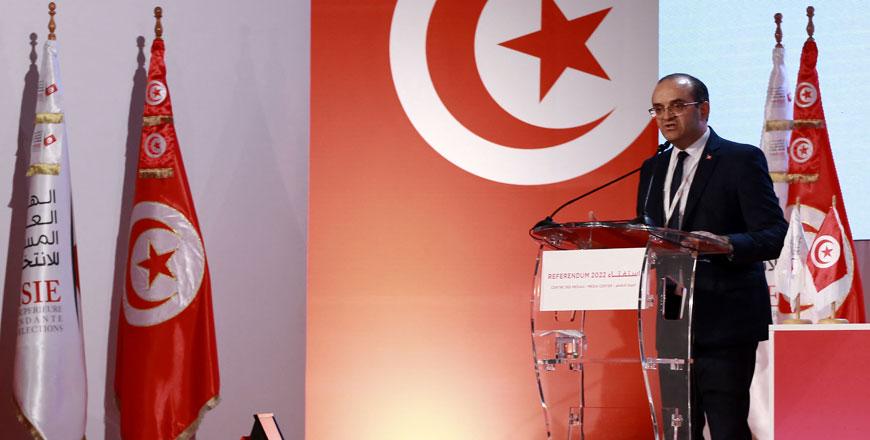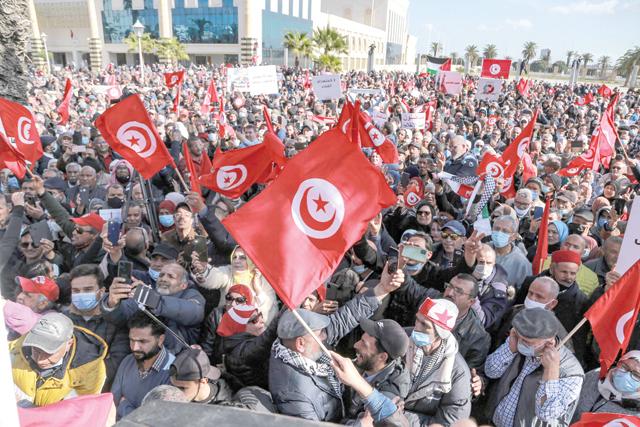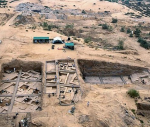You are here
Tunisia police block protest against Saied referendum
By AFP - Jun 04,2022 - Last updated at Jun 04,2022
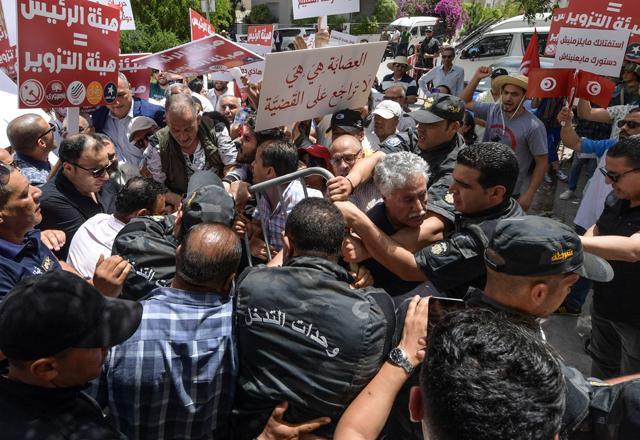
Tunisian labour party spokesman Hamma Hammami (centre) is among demonstrators blocked by the police as they headed towards the headquarters of the electoral authority ISIE, during a rally against their president, in the capital Tunis, on Saturday (AFP photo)
TUNIS — Tunisian police used pepper spray on Saturday to disperse protesters against President Kais Saied and a planned July referendum, nearly a year after he seized wide-ranging powers in what opponents decry as a coup.
The police blocked the protesters, who numbered around 100, as they attempted to reach the headquarters of the electoral commission, whose chief Saied replaced last month in a further extension of his control of state institutions.
Some at the protest in Tunis, organised by five small political parties, held up placards reading "the president's commission = fraud commission".
"The police... sprayed gas in our faces and attacked us," said Hamma Hammami, head of the Tunisian Workers' Party.
Saied on July 25 sacked the government and suspended parliament, which he later dissolved in moves that sparked fears for the only democracy to have emerged from the Arab Spring uprisings.
He has laid out plans for a referendum next month on a replacement of the 2014 constitution that had enshrined a mixed parliamentary-presidential system often plagued by deadlock and nepotism.
But the draft of the new constitution, which is to be put to the public in a simple yes/no vote, has not yet been published.
One placard at Saturday’s protest read: “I don’t need your referendum and I don’t care about your constitution.”
On April 22, Saied gave himself powers to appoint three of the seven members of the electoral commission, including the president.
Then last month he replaced commission chief Nabil Baffoun, a critic of the president’s July power grab, appointing former commission member Farouk Bouasker to the position.
Saturday also marked the start of a national dialogue organised by Saied but boycotted by opponents, including the powerful UGTT trade union, on the grounds that it excludes key civil society actors and political parties.
Saied’s opponents accuse him of moving towards an autocracy.
Some Tunisians however support his moves against a system they say achieved little in the decade since a 2011 revolt that toppled dictator Zine El Abidine Ben Ali.
Related Articles
TUNIS — Hundreds demonstrated on Sunday in Tunisia’s capital against a planned referendum on constitutional changes and President Kais Saied
TUNIS — Tunisia has approved a new constitution granting unchecked powers to the office of President Kais Saied, the electoral board said, a
TUNIS — Thousands of Tunisians protested on Sunday after President Kais Saied gave himself sweeping powers over the judiciary, his latest st


